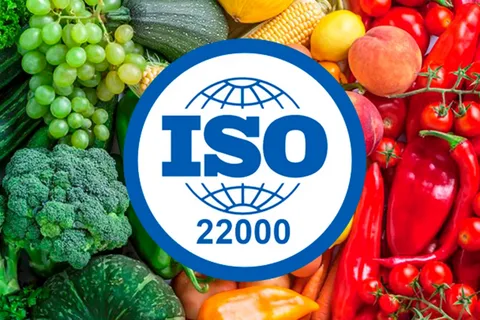What Is ISO 22000 Certification?
The Food Safety Standard That Actually Works
ISO 22000 isn’t just another checklist—it’s a globally recognized system that helps food businesses identify, control, and prevent hazards at every stage of production. From farm to fork, it ensures safety isn’t left to chance.
How ISO 22000 Differs from Other Food Safety Programs
While HACCP focuses mainly on critical control points, ISO 22000 takes a big-picture approach, covering:
-
Supplier controls (no more questionable ingredients)
-
Process management (consistent safety at every step)
-
Emergency preparedness (because recalls happen)
Why Your Food Business Needs ISO 22000
Prevent Foodborne Illness (Before It Happens)
One E. coli outbreak can destroy a brand overnight. ISO 22000 helps you spot risks early—whether it’s cross-contamination, improper storage, or supplier issues.
Boost Consumer Trust & Brand Reputation
Today’s customers Google before they chew. Displaying an ISO 22000 certification tells them: “We take safety as seriously as you do.”
Open Doors to Bigger Retailers & Export Markets
Walmart? Tesco? Exporting to the EU? Many major buyers require certification. Without it, you’re locked out of lucrative deals.
Reduce Waste & Save Money
A well-run food safety system means:
-
Fewer spoiled batches
-
Lower recall risks
-
Less regulatory fines
The ISO 22000 Certification Process (Step-by-Step)
Step 1: Conduct a Food Safety Gap Analysis
Before diving in, figure out where your current system falls short.
Step 2: Implement HACCP Principles
Identify Critical Control Points (CCPs)—the make-or-break steps where hazards must be controlled.
Step 3: Train Your Team (Properly!)
No more “I thought someone else checked the temps!” Every employee must understand their role in food safety.
Step 4: Document Everything (The Right Way)
Auditors love evidence, not promises. Proper records prove your system works.
Step 5: Pass the Certification Audit
An accredited body will verify your system. Pass, and you’re officially certified!
Common Challenges (And How to Overcome Them)
“We’re Too Small to Need This” (Spoiler: You’re Not)
Even food trucks and local bakeries benefit. Smaller businesses recover slower from safety scandals.
Employee Pushback (“This Is Just More Paperwork!”)
Fix this by:
-
Making training engaging (no death-by-PowerPoint)
-
Showing real-life consequences of poor safety
Keeping Up with Changing Regulations
A good ISO certification service will help you stay compliant as laws evolve.
ISO 22000 vs. Other Food Safety Standards
ISO 22000 vs. HACCP
-
HACCP = Hazard-focused
-
ISO 22000 = HACCP + management system + continuous improvement
ISO 22000 vs. BRCGS & SQF
BRCGS and SQF are more rigid, often required by retailers. ISO 22000 is more flexible, ideal for global markets.
How to Choose the Right ISO Certification Services
Look for Food Industry Experience
A provider who’s only certified factories won’t understand a restaurant’s unique risks.
Avoid “One-Size-Fits-All” Providers
Your coffee roastery ≠ a frozen pizza plant. Your certification partner should get that.
Compare Costs vs. Value (Cheapest Isn’t Always Best)
A £2,000 certification that misses risks is more expensive than a £5,000 one that prevents a recall.
Real-World Success Stories
How a Small Bakery Landed a Supermarket Contract
After certification, they:
-
Tripled their wholesale orders
-
Reduced customer complaints by 80%
A Food Manufacturer That Cut Recalls by 90%
By tightening supplier checks and process controls, they saved £250,000/year in lost product.
Getting Started with ISO 22000
-
Assess your current food safety gaps
-
Get leadership on board
-
Find a certification body that speaks your language (literally and figuratively)
FAQs
1. How long does ISO 22000 certification take?
Typically 4-8 months, depending on your starting point.
2. Can restaurants get certified, or just manufacturers?
Any food business can! From food trucks to fine dining.
3. What’s the cost range?
£3,000–£10,000+, depending on size and complexity.
4. Do we need to recertify?
Yes—annual audits and a full re-certification every 3 years.
5. Will this replace our existing food safety program?
No—it should enhance and organize what you already do.
Sponsored article: AI Call Assistants Enable Data-driven Decisions and Personalized Screening
